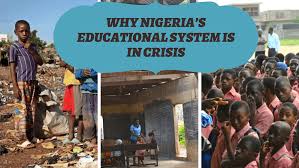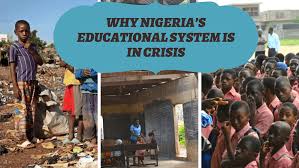Nigeria is facing a growing crisis in its education sector, as the escalating costs of basic goods and services threaten the ability of families to provide for their children’s education. The “Sapa” syndrome, a colloquial term describing financial incapacity or extreme poverty, has become a harsh reality for many Nigerians.

Rising inflation has stretched family budgets to the breaking point, forcing difficult decisions about spending priorities. For students, this means sacrificing educational opportunities, dropping out of school, or settling for subpar institutions. The consequences extend beyond individual households, limiting Nigeria’s economic growth and hindering the development of a skilled workforce.
The education crisis has far-reaching implications for national security. When students are unable to complete their education, they become vulnerable to negative influences, contributing to the alarming rise of banditry, gang recruitment, and other criminal activities. This cycle of deprivation and desperation jeopardizes the future of young individuals and threatens community stability.
To address this issue, policymakers must prioritize creating equitable and affordable education systems. Implementing price controls on essential school supplies and preventing arbitrary fee increases by educational institutions are vital steps. Increased investments in public education can alleviate financial strain on parents, making it easier for families to prioritize their children’s education without sacrificing basic needs.
Advocating for affordable learning is not just a call to action; it is a demand for justice in education. Every child has the right to quality education without compromising access to food, healthcare, or shelter. Citizens must rally together to push for reforms that acknowledge and address the barriers faced by students and their families.
Nigeria’s future depends on its ability to provide quality education to its youth. By prioritizing affordability in education, the country can ensure that every child has the opportunity to learn, grow, and contribute to a brighter future. Education should never come at the cost of basic needs; rather, it should be a pathway to empowerment and opportunity for all.
The Nigerian government and stakeholders must take immediate action to address the education crisis. This includes investing in public education, controlling prices of essential school supplies, and ensuring that educational institutions do not escalate fees arbitrarily. By doing so, Nigeria can secure a brighter future for its youth and position itself for economic growth and development.
The “Sapa” syndrome has shed light on the multifaceted challenges facing Nigeria’s education sector. It is imperative that policymakers, stakeholders, and citizens work together to prioritize affordable education, ensuring that every child has access to quality learning without sacrificing basic needs. The future of Nigeria depends on it.




